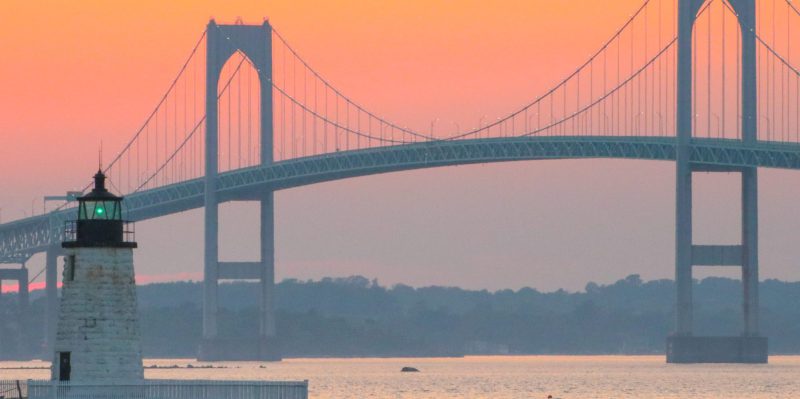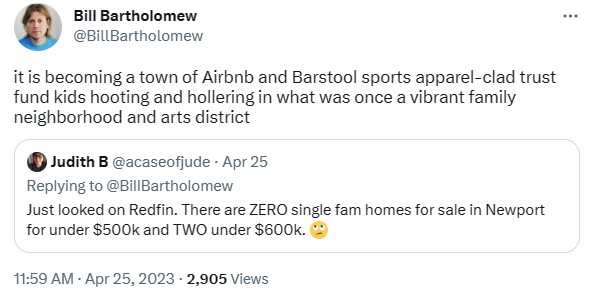
Newport’s character and cost is a matter of choice.
Artsy people’s complaining about gauche wealth-culture is nothing new, but something about this complaint by progressive podcaster and musician Bill Bartholomew struck me as oblivious of the obvious:

Working late on Friday to frame out a roof on Ocean Drive 15 years ago, while watching BMWs roll by, I had similar thoughts. But I also appreciated the consistent and interesting work available to me as a carpenter, as well as the beauty of location and architecture around me. The same qualities attract many tourists each year.
Note, however, Bartholomew’s snobbish juxtaposition of “hooting and hollering” from people he looks down on and the “vibrant” lives of people he prefers. His artist’s view might move toward my artisan’s perspective if the funding structure of the arts hadn’t shifted so dramatically from the patronage of the wealthy to the dole of the government.
Progressives and socialists (if there’s a difference, at this point) fall into the trap of thinking that government control will change the aspects of society they want changed while preserving those they value. They can be surprisingly reactionary about the latter, tightly gripping the false beliefs that (1) their views will guide government (which they won’t, even if politicians’ ape their slogans) and (2) that government is capable of nuanced and fine-tuned control of progress. It isn’t. Government is a blunt tool.
The trends in Newport and across the state are the consequence of the choices Rhode Islanders have made through their government, but the ability to imagine an outcome does not mean it’s really available. You cannot have the past back. You cannot freeze the present. The city is going to change one way or another. If government seeks to preserve its architectural character, then the prices will go up. If activists demand housing prices freeze or go down, the city must change.
I’ve said this before, but it bears repeating: A crucial element of Rhode Island’s charm is its diversity of neighborhoods — the unique character of small areas. That doesn’t happen with planning; it happens with freedom, and freedom brings change, leaving us only the choice to adapt.
Maybe the entirety of Newport will become AirBnBtown, but then workers will be able to demand a premium for their travel there. (More economic liberty might produce innovative ways to get them to work and reduce the traffic.) Or maybe the economics of property value will make lower-cost housing profitable for developers in ways that will make the trust funders complain.
My prediction is that if we stop trying to control everything and let niches develop, taking enjoyment from the excitement of watching the future unfold, our attitude will change as a community. Sure, everybody gripes a bit as things change, but if they can carve out a place, even the things they gripe about gather a familiar warmth around them. And if the change is fundamentally incompatible with any given person’s preferences, maybe Newport isn’t the place for him or her. Why should we entertain such people’s demand that everybody else accommodate their tastes?
Featured image from Shutterstock.

Years ago, I rented a house in Newport and spent a summer there. Although unable to recall street names, I noticed a street more or less parallel to Bellevue Avenue, but behind the mansions. I noticed it was lined with very old multi families. I thought they must have been pre-zoning, or they would never have been allowed.